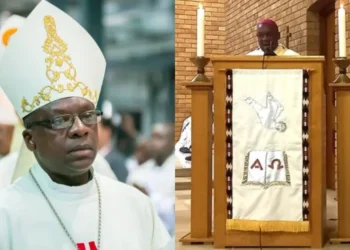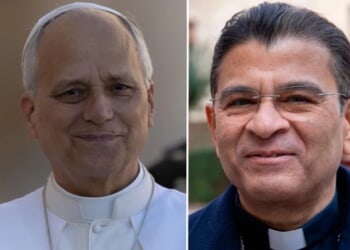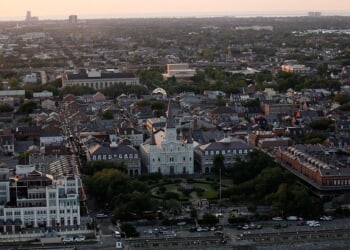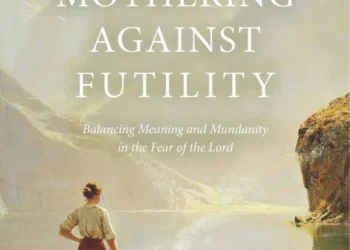Darwin Friend is research director at the Tax Payers Alliance.
Surely nothing captures the extent to which the BBC has fallen than the manner of the fallout from the resignations of Tim Davie and Deborah Turness. As is often the case in situations like these, it is the reaction to the scandals that says as much about the BBC as the scandals themselves.
Just look at a few examples of how big hitters from the BBC’s past and present have reacted. Nick Robinson took to X to warn against “a political campaign by people who want to destroy the organisation.” David Yelland called what happened to Tim Davie and Deborah Turness “nothing short of a coup, a national disgrace.” Lewis Goodall complained that “the hysteria over this story is on another level.”
Let’s remind ourselves about the cause of this hysteria. Last week an internal dossier authored by Michael Prescott and leaked to The Telegraph detailed a string of serious failings by the state broadcaster. It included numerous allegations of institutional bias and evidence of journalistic malpractice. Surely the most egregious, and the one which provoked much of the “hysteria” that Goodall complained about, was that the BBC “doctored” a speech by President Donald Trump, to make it appear that he directly called for violence on January 6th.
Extraordinarily, despite this being raised to the Editorial Guidelines and Standards Committee (EGSC), nothing was done. According to the memo, the Executive “refused to accept there had been a breach of standards and doubled down on its defence of Panorama.”
That wasn’t all. The dossier also included a stunning exposé of the biased and misleading nature of much of the BBC’s coverage around biological sex and gender, Israel and Hamas and racial diversity.
On three of the most contentious, febrile and challenging issues of our time, the BBC has failed us. Yet some of its stars, including former stars, think the issue is a conspiracy against it.
Now this would be a problem for any media organisation.
We should have high standards for the fourth estate. But the true long term guarantor of the health of the British media won’t be a regulator, or Lisa Nandy. It will be the free market of ideas.
Organisations which provide a successful, desirable product will thrive. We simply have to trust that the British people ultimately value fact-based journalism. Otherwise no level of regulation or state funding will make a difference. But what is arguably almost as important as fact-based journalism is being open and honest about your editorial stance. There is an effectively unlimited number of facts, viewpoints and stories that a media organisation could report. Which they pick, and how they present them will be defined by the editorial position of the organisation. Fail to provide that, and the reader will be ill-informed about why this story is being covered, and not another one.
The problem with the BBC, is that no matter how far it falls, no matter how badly it fails, it has a safety net. The licence fee, or TV tax.
Introduced when the BBC was the only broadcaster, and when its transmission could not be limited to only specified TVs, it made sense as a funding model. The fact that it still exists is farcical.
Now, if you stream live TV on YouTube from a channel completely unrelated to the BBC, and that’s the only live TV you watch, you still have to pay the licence fee, no matter how much you may disagree with the content. Imagine being passionately opposed to the BBC’s coverage of the Israel/Hamas conflict. Perhaps you take issue with the fact that Samer Elzaenen,a “journalist” who suggested Jews should be burned “as Hitler did” appeared on BBC Arabic 244 times over 18 months. Or you’re a gender-critical feminist unhappy with what has been described as the “effective censorship by the specialist LGBTQ desk.” Well, at the pain of prosecution and even imprisonment, you have to pay the licence fee if you watch any live television at home, on any channel, in any format and any device. No room for conscientious objectors.
This is completely intolerable. And it’s pretty clear the direction of travel from this Labour government. While Lisa Nandy has indicated that the licence fee could be on the table, she has also indicated extending the requirement to have one to those who only consume on-demand television such as Netflix.
This is where the Conservative Party must step in.
The BBC is beyond saving in its current form. One of Kemi Badenoch’s favourite quotes is from Thomas Sewell – “When you want to help people, you tell them the truth. When you want to help yourself, you tell them what they want to hear.”
It’s always in the short term interests of politicians and the BBC itself to simply continue with the old, tired model. Why have that fight? But the very thing that is keeping the BBC going is also holding it back. Preventing it from truly modernising, preventing it from coming to terms with its failures.
Nick Robinson decries a “political campaign by people who want to destroy the organisation.”
Kemi need not be part of this.
She can claim to be the leader who truly wants to save the organisation. Not by keeping it on the cheap and easy drug of the licence fee, but by truly modernising it and moving it to the subscription model that has so revolutionised and transformed our media landscape.
It’s time the Conservatives come out in favour of scrapping the licence fee.







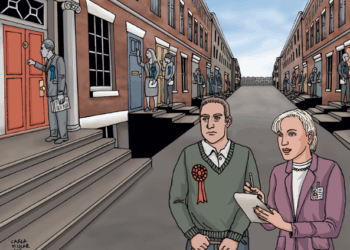
![Donald Trump Slams Chicago Leaders After Train Attack Leaves Woman Critically Burned [WATCH]](https://www.right2024.com/wp-content/uploads/2025/11/Trump-Torches-Powell-at-Investment-Forum-Presses-Scott-Bessent-to-350x250.jpg)




